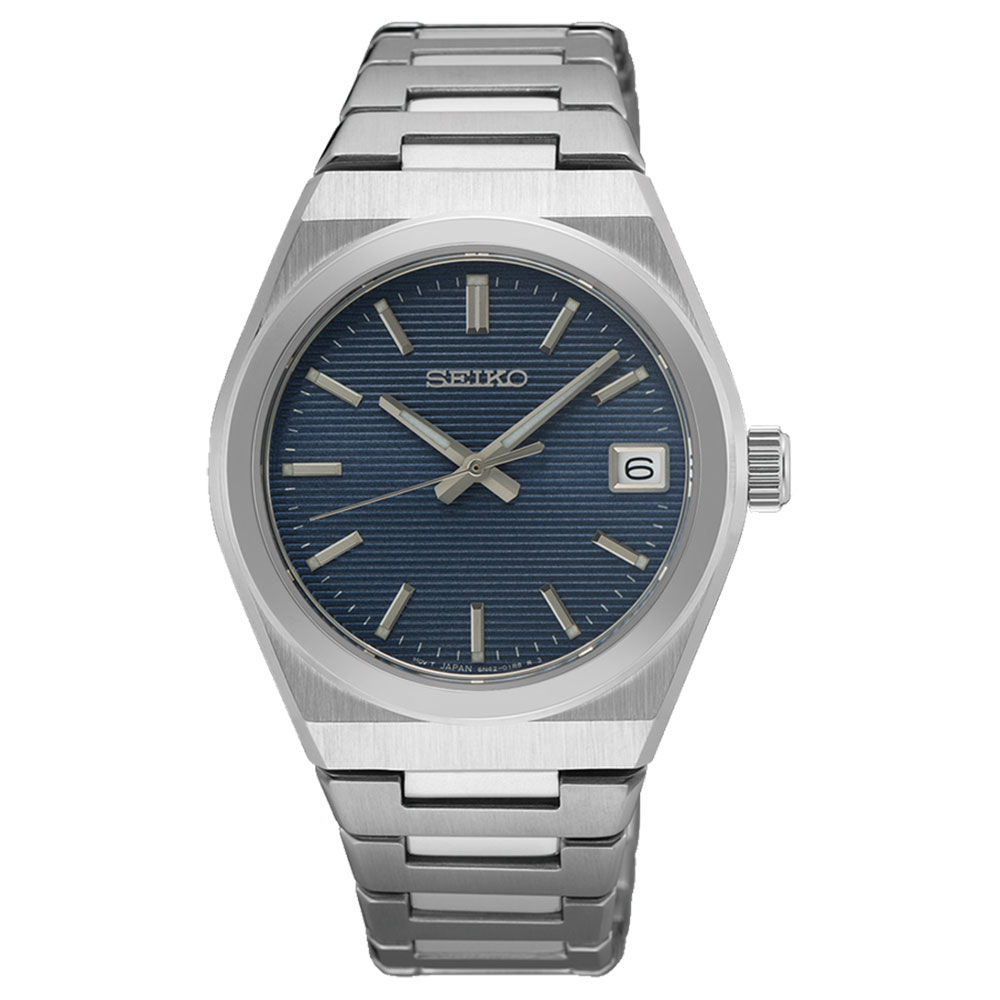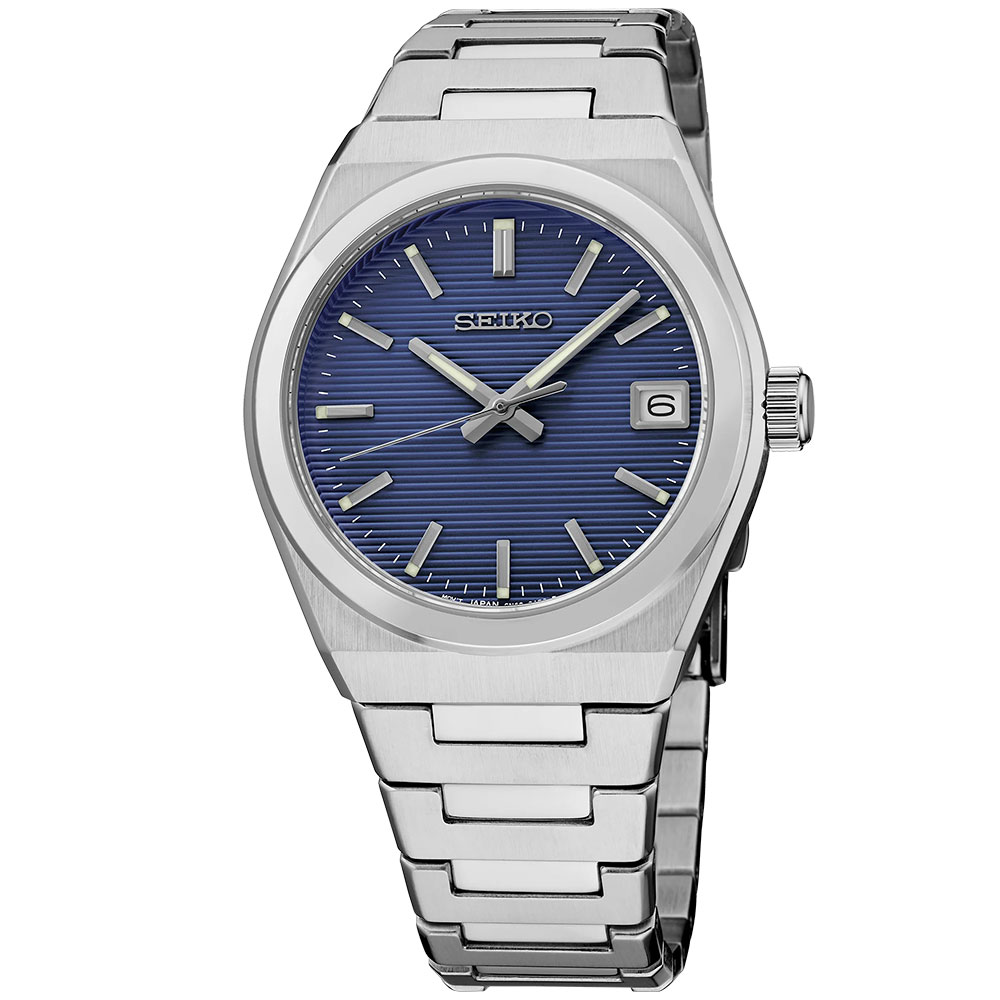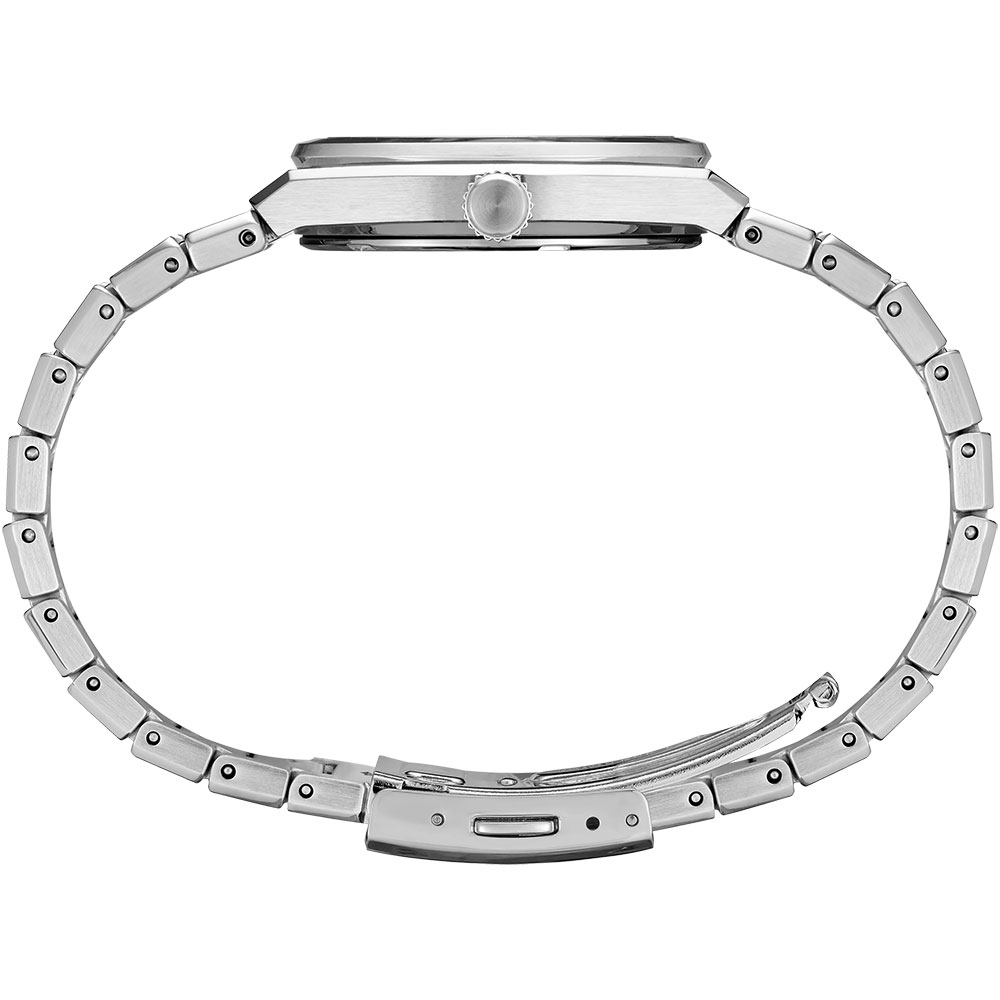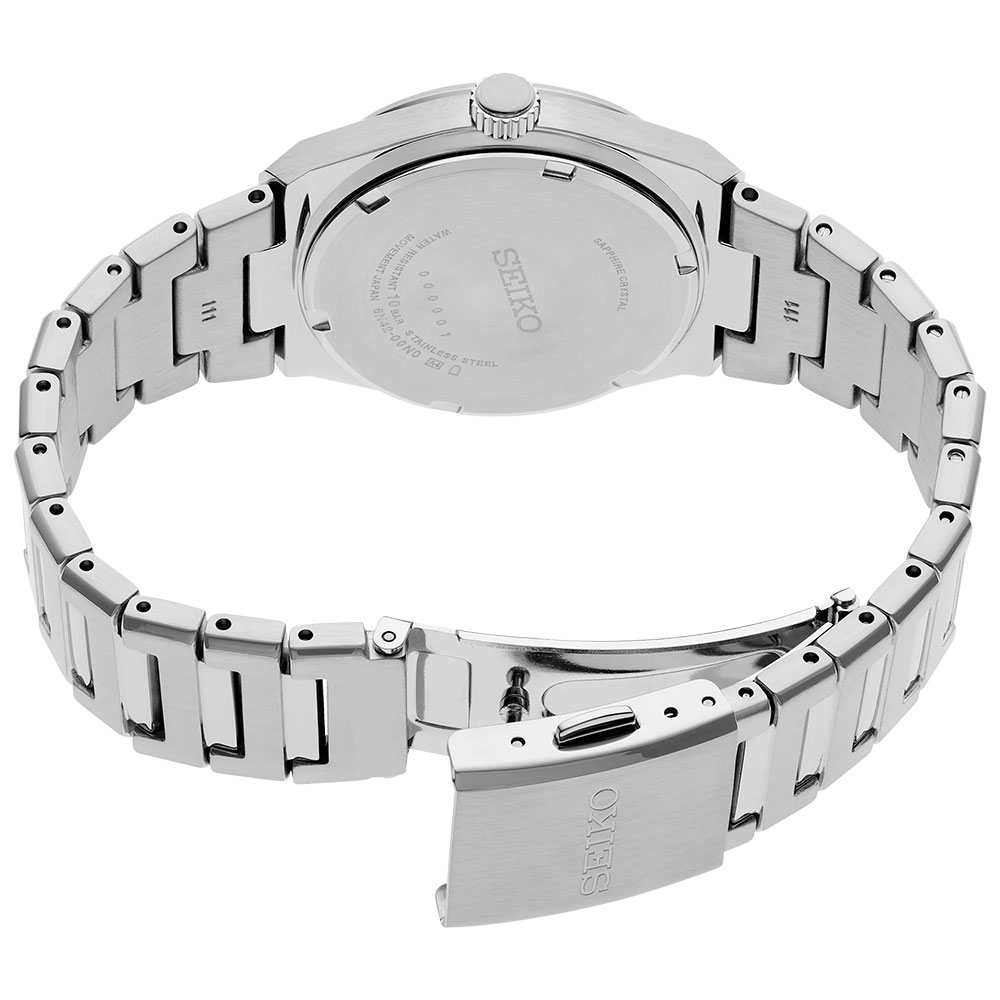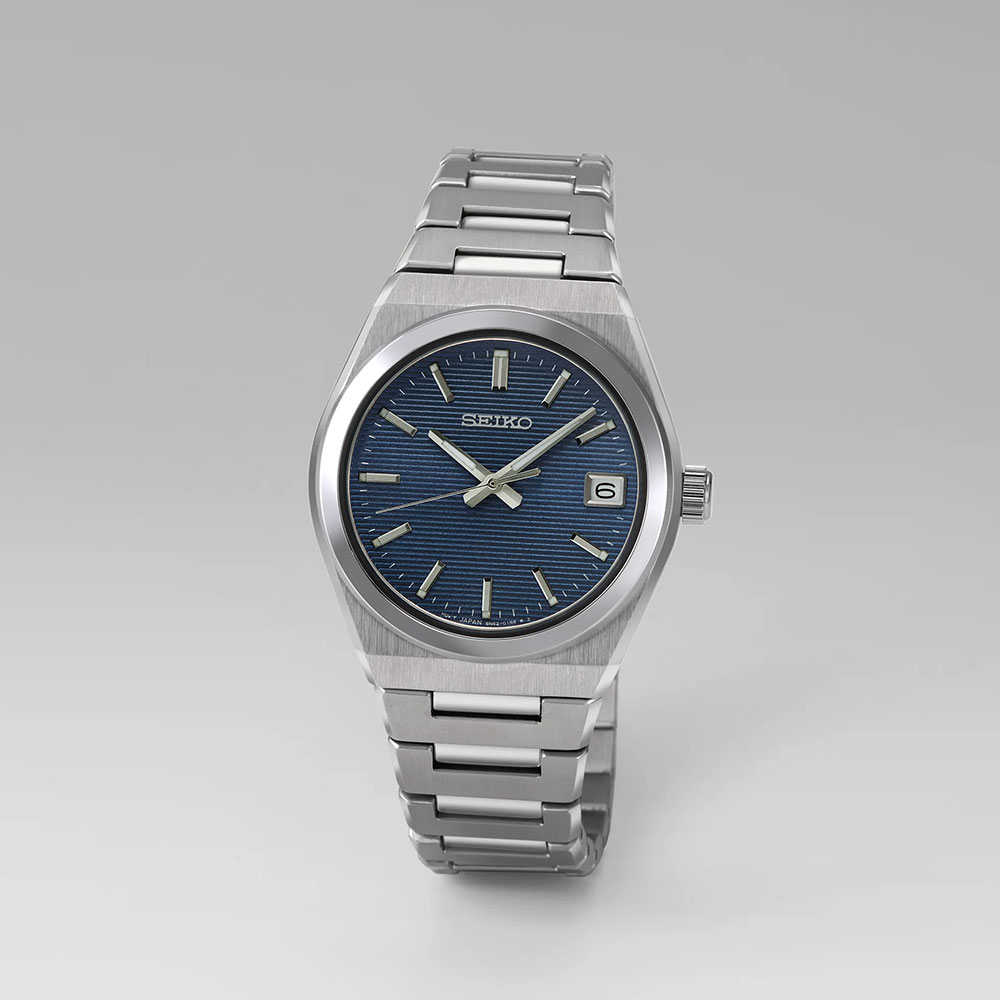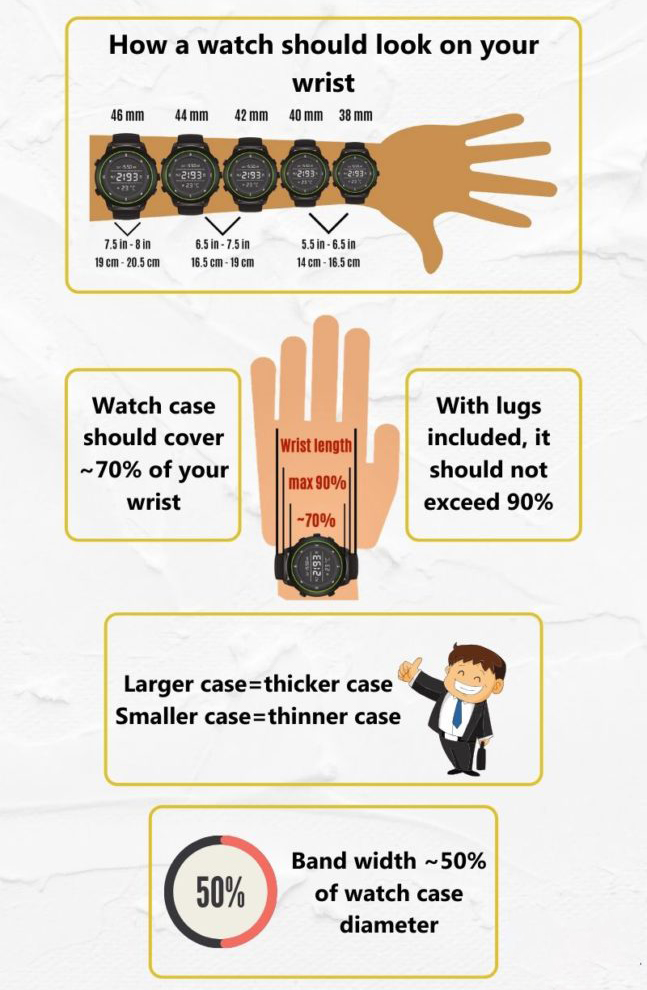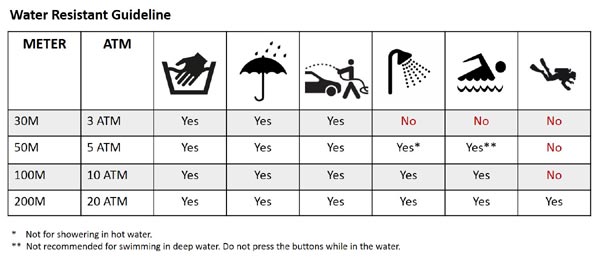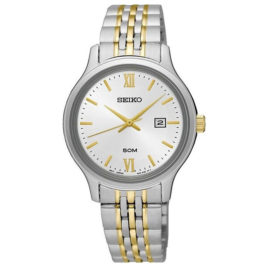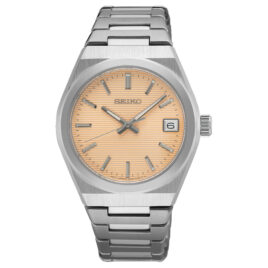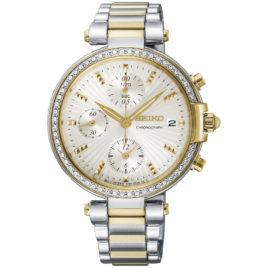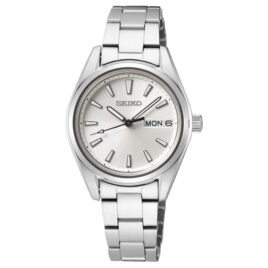Description
SEIKO QUARTZ Classic SUR575 Specifications
| Feature |
| |||
|---|---|---|---|---|
| Driving system | Quartz | |||
| Caliber Number | 6N42 | |||
| Case material | Stainless steel | |||
| Case back | Solid screw | |||
| Band type | Bracelet | |||
| Band material | Stainless steel | |||
| Band color | Silver tone | |||
| Band width | 10 mm | |||
| Clasp | Three fold with push button release | |||
| Dial color | Dark blue pressed pattern | |||
| Glass material | Sapphire crystal | |||
| Hands | Luminous silver tone hour, minute, second | |||
| Second markers | Minutes markers around the outer rim | |||
| Dial markers | Luminous silver tone batons indexes | |||
| Lumi Brite | Hands and markers | |||
| Bezel | Fixed silver tone stainless steel | |||
| Crown | Pull / push at 3 o’clock position | |||
| Calendar | Date display at 3 o’clock position | |||
| Function | Date, hour, minute, second | |||
| Accuracy | ±15 seconds per month | |||
| Drive duration | Battery life approximately 3 years | |||
| Magnetic resistance | 4,800 A/m | |||
| Water resistance | 10 bar water resistance (100 meters / 330 feet) | |||
| Size | Diameter 34 mm x Thickness 8.2 mm | |||
| Lug to lug | 41.5 mm | |||
| Weight | 95 g |
SEIKO QUARTZ Classic SUR575 Features
From the Essentials Collection. A modern take on a classic style, this elegant watch features a sleek, angular case and bracelet design perfect for both dress occasions and everyday wear. The dark blue pressed patterned dial showcases simple silver stick indices for a contemporary feel and includes a date calendar and LumiBrite hands and markers. Crafted of stainless steel with a scratch-resistant sapphire crystal, this versatile timepiece is equipped with a secure screw down case back and tri-fold push button release clasp. 10 bar, 100M Water Resistant.
- Calendar date display
- Silver stainless steel case
- Silver stainless steel bracelet
- Silver stainless steel bezel
- Solid screw case back
SEIKO QUARTZ Classic SUR575 History
The company was founded in 1881, when Kintarō Hattori opened a watch and jewelry shop called “K. Hattori” (服部時計店 Hattori Tokeiten) in the Ginza area of Tokyo, Japan. Eleven years later, in 1892, he began to produce clocks under the name Seikosha (精工舎 Seikōsha), meaning roughly “House of Exquisite Workmanship”. According to Seiko’s official company history, titled “A Journey In Time: The Remarkable Story of Seiko” (2003), Seiko is a Japanese word meaning “exquisite” or “success” (“exquisite” is usually written 精巧 from Chinese jīngqiǎo, while the meaning “success” is usually written 成功 from Chinese chénggōng).
The first watches produced under the Seiko brand appeared in 1924. In 1969, Seiko introduced the Astron, the world’s first production quartz watch; when it was introduced, it cost the same as a medium-sized car. Seiko later went on to introduce the first quartz chronograph.
In the late 1980s, Seiko produced the first automatic quartz that combined the self-energizing attributes of an automatic watch with quartz accuracy. The watch is entirely powered by its movement in everyday wear. In 1991, to increase popularity, these watches were relaunched under the name Seiko Kinetic.
source : https://en.wikipedia.org/wiki/Seiko

